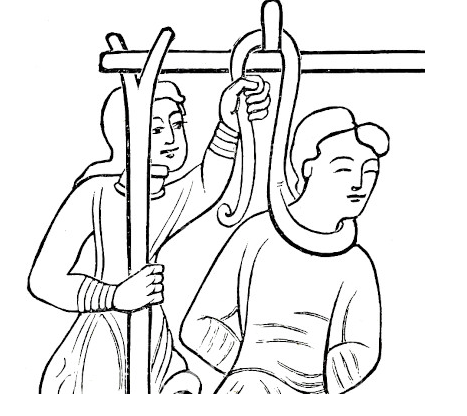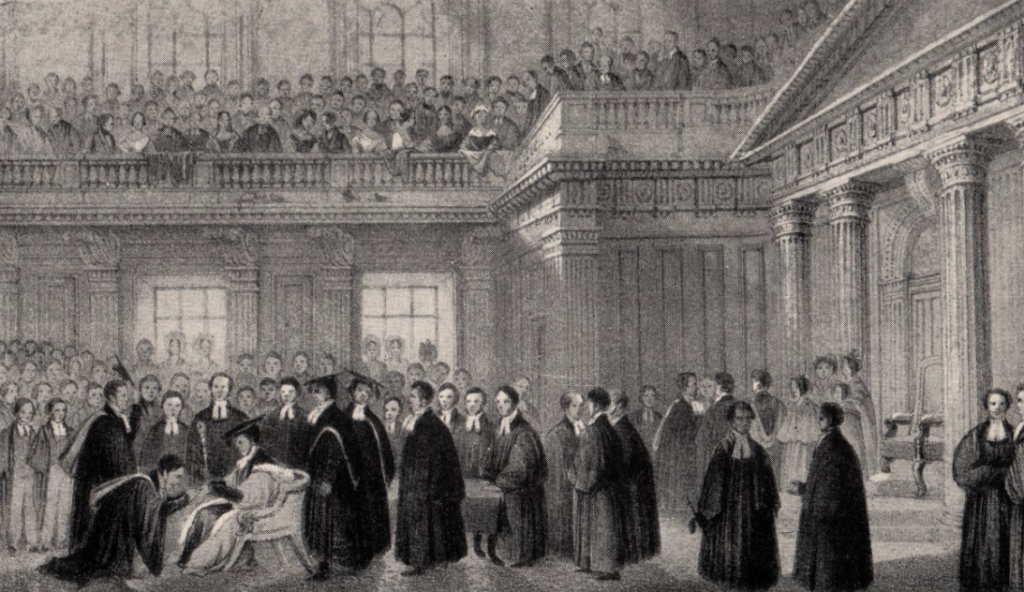In the singular form the lexicon of a particular subject is all the terms associated with it. The lexicon of a person or group is all the words they commonly use. As a plural noun, a lexicon is an alphabetical list of the words in a language or the words associated with a particular subject. To distinguish lexicon from a dictionary, it is an alphabetical list of the words in a language or the words associated with a particular subject.
These examples are a mix of what one might hear upon the lips of the aristocracy, as well as examples of Cant used upon London’s streets and those terms used by farmers and like in the country.

to nab – to seize or catch unawares
Nabob – a person who returned from India to Europe with a fortune
nacky – ingenious
national school – schools set up by the Church of England’s National Society for Promoting the Education of the Poor in the Principles of the Established Church throughout England and Wales; originally founded in 1811; organized to teach children to read the Bible; eventually became the man source of primary education for the England’s lower classes
navy list – a list of the officers in the navy, as well as their positions/ships
navvy – those who worked on the building of the canals in the early 1800s; they were “inland navigators”; performs very hard physical labor
neck or nothing young blood – a very sporty young nobleman

Neck Verse – the person claiming the benefit of clergy were obliged to read a verse in a Latin manuscript to save themselves on the gallows; Accused laymen who lacked the requisite familiarity with Latin could attempt to cheat the test by learning the verse in question. Hence Psalm 51 became known as the ‘neck verse’ – because it could save your neck from the noose.
negus – a popular drink at balls and assemblies; made from sugar mixed with water and wine (sherry and port); credited to Colonel Francis Negus
nettled – provoked; out of temper
never a feather to fly with – has no money
newel post – the post at the bottom of the stairs; a bannister extended upward from it

com/serial_killers/weird
/todd/newgate_4.html
Newgate Prison – the main prison in London; site of public executions; connected to the Old Bailey by a passageway; sadistically, the accused was seated beside his coffin in the prison chapel; people were charged a shilling to view the proceedings
Newgate Calendar – a collection of the biographies of some of Newgate Prison’s most notorious inmates
New Light – a Methodist
nicknacks – toys, baubles or curiosities
nicknackatory – a toyshop
nicumpoop or nincumpoop – a foolish fellow
night magistrate – a constable
nightman – one whose business it was to empty necessary houses in London; always done in the night
nightrail – night gown, also called a bed dress, and it really was a dress, long sleeve high collar, ruffle along the bottom
to nim – to steal or pilfer
ninny or ninnyhammer – derogatory term calling someone stupid or slow; although often said with affection in a teasing manner
nob – a person with a great deal of social status
nobility – generally used to refer to the peerage; class of people of high rank or birth
noblesse oblige – a French phrase that means “nobility obliges”; the obligation of honorable, generous, and responsible behavior associated with high rank or birth
noddy – a simpleton or fool; also a kind of low cart with a seat before it for the driver, found in and around Dublin and used in the same manner as a hackney coach
nonconformists – the Protestant sects (Quakers, Unitarians, Baptists, and Methodists) who did not conform to the Church of England’s teachings; nonconformists could not hold office in a borough (until 1828), nor could they receive an Oxford or Cambridge degree
not a mean bit yet – still attractive
nonesuch (sometimes nonpareil) -the male equivalent of the “”Incomparable,” which is a female of the ton without rival, match or peer. A nonesuch would excel at sports, driving, and the cut of clothes, etc.
Nore Naval Mutiny (May 1797) – near the Thames Estuary, sailors mutinied over the terrible living conditions on board ship and for the low pay; the mutineers blocked the London port; unfortunately, the mutiny failed as a result of deserters and a lack of food
normal school – one that trained teachers
note of hand – a promissory note
notorious picksome – fussy
nunnery – slang for a bawdy house
nursery – a room set aside for your children (infants to age 4 or 5)
nursery maid – bathed and dressed the children of wealthy women; they entertained their charges during the day
nypper – a cut-purse or pickpocket; so called by one Wotton, who in the year 1585 kept an academy for the education and perfection of pickpockets and cut-purses, which was a “school” located near Smart’s Key, near Billingsgate
oaf – a silly fellow
oakum – the tarred strands that make up ropes; in many prisons, the inmates picked oakum apart; then ships were caulked with the oakum substance
oatcakes – the wealthy in Scotland, Ireland, and northern England ate oatcakes, while the poorest classes settled for ones made from corn, barley, and wheat
to occupy a woman – to have carnal knowledge of the woman
Octagon Room – in Bath; a central room with a domed roof and walls painted with scenic designs; served as a meeting room and as a music room
offices – the parts of the house where work was conducted (kitchen, stables, etc.)
!["The Old Bailey, Known Also as the Central Criminal Court" Date 1808 SourceAckermann, Rudolph; Pyne, William Henry; Combe, William (1904) [1808] "Old Bailey" in The Microcosm of London: or, London in Miniature, Volume 2, London: Methuen and Company Retrieved on 9 January 2009. Public Domain](https://reginajeffers.blog/wp-content/uploads/2015/01/images2.jpeg)
Date 1808
Source Ackermann, Rudolph; Pyne, William Henry; Combe, William (1904) [1808] “Old Bailey” in The Microcosm of London: or, London in Miniature, Volume 2, London: Methuen and Company Retrieved on 9 January 2009. Public Domain
Old Bailey – the site of the main criminal court in London
old dog at it – expert; accustomed
Old Harry – a composition used by vintners to adulterate their wines; also the nickname of the Devil
Old Style – the means to reckon dates before 1752, when the English changed out the Julian calendar and replaced it with the Greorgian calendar; they permanently “lost” eleven days in the process (Thursday, September 14, 1752 followed Wednesday, September 2, 1752, under the new calendar.)
Oliver’s scull – a chamberpot
on the shelf – a term referring to a spinster no longer in her first blush of youth and not considered a likely candidate for marriage due to her age
Optime – the senior and junior optimes are the second and lass classes of Cambridge honors conferred on taking a degree. Wranglers is the first optime. The last junior optime is called the Wooden Spoon.
At the University of Cambridge in England, a “Wrangler” is a student who gains first-class honours in the Mathematical Tripos competition. The highest-scoring student is the Senior Wrangler, the second highest is the Second Wrangler, and so on. By contrast, the person who achieves the lowest exam marks while still earning a third-class honours degree (that is, while still earning an honours degree at all) is known as the wooden spoon.

(taking) orders – becoming a clergyman in the Church of England; the church consisted of three orders: deacons, priests, and bishops
ormolu – from the French word for “gold”; a piece of furniture/clock/ornamentation made to look gold through the use of gold leaf or a substance resembling gold
ottoman – (not a footstool) an upholstered bench, generally with no arms or back used as kind of sofa
overset – bring upset; crying, etc.
outrider – an armed rider who rides ahead of a carriage and sometimes behind to keep an eye out for highwaymen
Other Sources:





Very useful list, Regina. I referenced Newgate Prison in a Regency that I just finished and during re-writes had to investigate the term “Newgate Bird” to make sure it was Regency accurate. Thank goodness it was listed in The 1811 Dictionary of the Vulgar Tongue (right above Newgate Solicitor – a term for a “petty fogging and roguish attorney”).
Thanks for the extra words, Mimi. In my list, I attempted to mention some of the more common words one would find if reading a Regency novel, but I love stumbling across new terms.